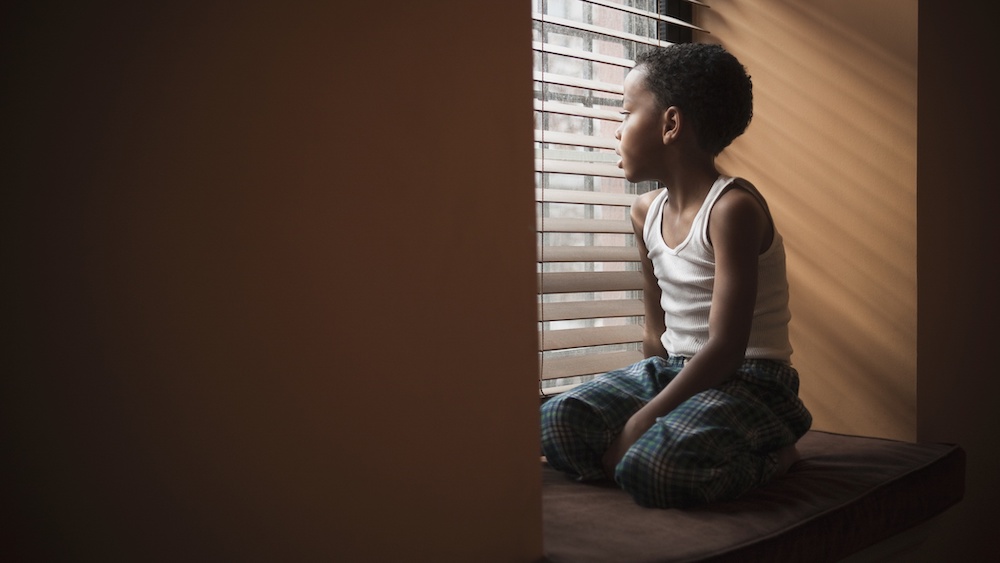If you’re interested in sharing your opinion on any cultural, political or personal topic, create an account here and check out our how-to post to learn more.
____
Co-written with Akin Abioye, Demontea Thompson and Deshunna Ricks
____
There have been many recent calls to defund the police and increase investment in social services. However, these calls for increased investment in social services should take caution as it relates to the child welfare system. This system has and continues to operate within a paradigm of anti-Blackness and further strengthens a culture of white supremacy and colonial imperialism. Foster care will not save Black children because of its racist practices, its criminalization of children and its maintenance and dependence on capitalism.
Foster Care and its Connection to Racism
Although we know Black children are overrepresented in foster care, present conversation largely ignores the actual interaction of race and child welfare. The experience of foster care is not one that exists in a vacuum. We must connect it directly to the structural racism that exists in society. Black children face challenges unique to their identity in a racist, hegemonic system. We cannot ignore this.
Dr. Sharon L. Mcdaniel wrote, “There should be no more debate on racism, for we have exceedingly met the burden of proof.” As it relates to the process of removal, racism is ubiquitous. For example, the screening process for removal includes poverty as a risk factor for neglect, and neglect is the primary reason child welfare agencies take children from their family of origin. Unsurprisingly, Black families are nearly 2.5 times more likely to live in poverty compared to white families. Thus, because of the racist practices that force Black families into poverty and the concomitant surveillance, Black children are twice as likely as white children to enter foster care.
Foster care has developed into a mechanism to surveil Black families. In large urban cities, law enforcement, education personnel and healthcare professionals are the primary sources of referrals to child welfare agencies, expectedly, these professionals are disproportionately white. Under the guise of safety, the very practice and policies of these professions and their guiding principles is community surveillance. However, these systems of surveillance, coupled with the racist history of the U. S., directly result from over-policing of Black families and overrepresentation of Black children in foster care.
Catalyst for Criminalizing Black Children
Black people with lived experience in foster care (BPFC) have fraught relationships with the police and child welfare who routinely join forces to surveil low-income Black communities. Sade Daniels describes the traumatic experiences of being forcibly removed from their [family of origin] by police and social workers and how these experiences underscore BPFC feelings of criminalization by police. These instances of criminalization permeate into education and the foster home environment.
Youth with histories of trauma display behaviors that are deep-rooted in pain and often considered inappropriate to white standards. People who hold several biases and are often ill-equipped to meet the needs of BPFC often confront these displays of pain with force. The criminalization of these youth is also clear in how care providers respond to their actions. For example, group home providers and educational institutions call the police as a course of action to manage the behaviors of BPFC. The trauma of being BPFC who has interactions with these oppressive systems leads to increased involvement with the carcel system.
These interactions frequently begin the foster care to prison pipeline. An article, “Throwaway kids: We are sending more foster kids to prison than college,” shared a study that highlighted that one out of three inmates had been in foster care. A short quote from an advocate stated, “foster care was just a breeding ground for prison.” Disturbingly, like many other oppressive systems, Black people represent a disproportionate number of those represented in the carceral system.
Capitalism Fuels Foster Care
Central to the child welfare and carcel systems are the degradation of Blackness and the maintenance of capitalism. The goal of capitalism is surplus, and within these systems Black bodies are the commodity.
Child welfare is a system full of resources from public and private funding sources managed predominantly by white administrators. This multi-million-dollar system, which dismantles Black families at disproportionate rates, preys on low-income communities to continue the flow of resources and perpetuate white savior and neoliberal ideologies.
Other industries such as pharmaceutical, mental health, nonprofits and the stock-market, which has investments in these systems, profit from the demise of the Black family and Black children in foster care. Money cycles through federal and state agencies and nonprofits, chiefly to the benefit of white people, who often determine the socio-economic trajectories of Black communities they purport to serve.
Conclusion
As a community, we mourn the loss of too many Black people killed by state sponsored violence. We should also remember those who have suffered the state-sponsored kidnapping of their children and whose lives will never be the same.
In the calls to defund the police, a simple transfer of money from one racist system to another will not work. We must demand a revolutionary shift to a model of community care and social justice. We urge advocates and professionals from across industries to invest intentionally in Black businesses and Black-led community organizations.
Black people have endured ineffective systems, often to their theoretical, but occasionally literal demise. There must be a critical examination of these systems, and the impact they have on Black families. Black people cannot afford for these systems to continue to repeat its history — we have run out of time!
